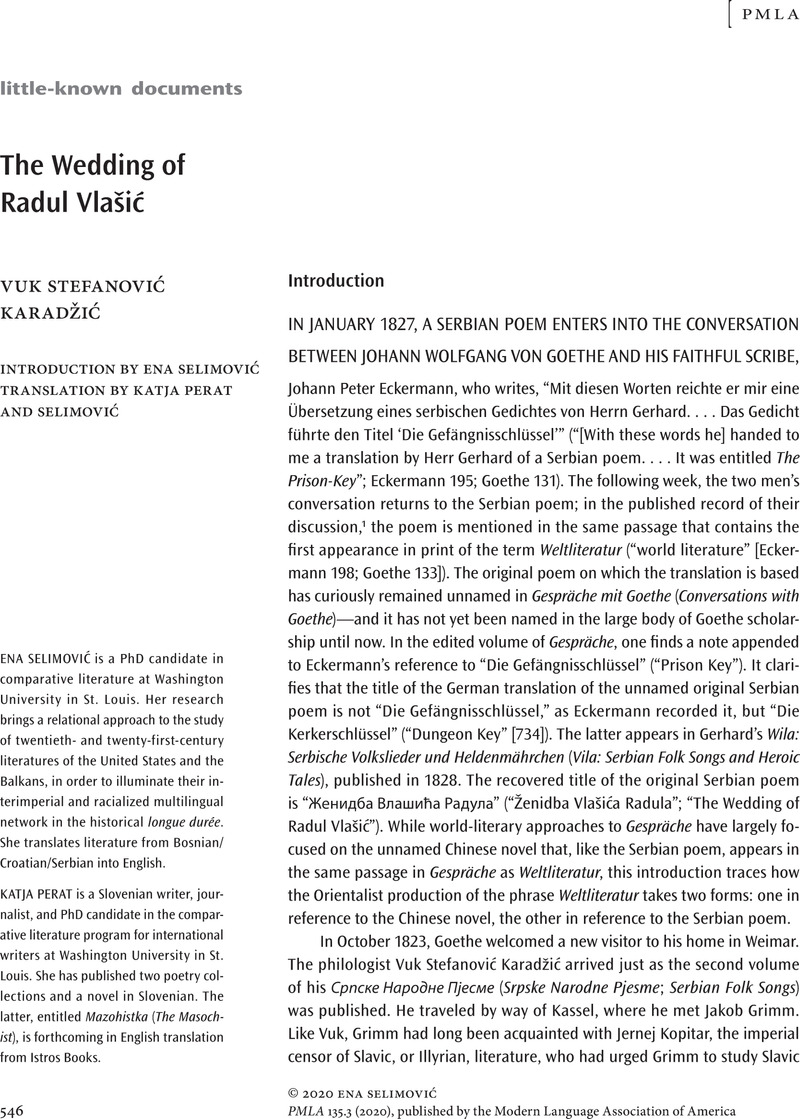No CrossRef data available.
Article contents
The Wedding of Radul Vlašić
Published online by Cambridge University Press: 23 October 2020
Abstract
An abstract is not available for this content so a preview has been provided. Please use the Get access link above for information on how to access this content.

- Type
- Little-Known Documents
- Information
- Copyright
- Copyright © 2020 Ena Selimovic
References
Works Cited
Cooper, David L. “The Classical Form of the Nation: The Convergence of Greek and Folk Forms in Czech and Russian Literature in the 1810s.” The Voice of the People: Writing the European Folk Revival, 1760–1914, edited by Campbell, Matthew and Perrandin, Michael, Anthem Press, 2012, pp. 35–48.CrossRefGoogle Scholar
Eckermann, Johann Peter. Gespräche mit Goethe in den letzten Jahren seines Lebens. 1836. Aufbau-Verlag, 1982.Google Scholar
Gerhard, Wilhelm. “Die Kerkerschlüssel.” Wila: Serbische Volkslieder und Heldenmährchen, Vol. 1, J. A. Barth, 1828, pp. 222–26.Google Scholar
Goethe, Goethe Johann Wolfgang. Conversations with Eckermann, 1823–32. Translated by Oxenford, John, North Point Press, 1984.Google Scholar
Karadžić, Vuk Stefanović. CpncKe Hapo∂ʜe Πjecᴍe [Srpske Narodne Pjesme; Serbian Folk Songs]. Nakladi Ane Udovice V. S. Karadžića, 1875.Google Scholar
Mani, B. Venkat. Recoding World Literature: Libraries, Print Culture, and Germany's Pact with Books. Ford-ham UP, 2017.CrossRefGoogle Scholar
Wilson, Duncan. The Life and Times of Vuk Stefanović Karadžić, 1787–1864: Literacy, Literature, and National Independence in Serbia. Oxford UP, 1970.Google Scholar


